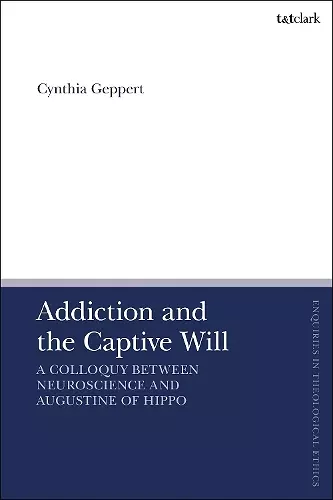Addiction and the Captive Will
A Colloquy between Neuroscience and Augustine of Hippo
Professor Cynthia Geppert author
Format:Hardback
Publisher:Bloomsbury Publishing PLC
Published:27th Jun '24
£85.00
Supplier delay - available to order, but may take longer than usual.

Presents a dialogue between the Augustine's Confessions and three modern neuroscientific models of addiction on the doctrine of the captivity of the will.
Twenty-first century neuroscience has discovered that in some severe cases, addiction may so constrain human freedom that the will is only able to choose to use substances of abuse. At this advanced stage, substance use has become the primary driver of salience, co-opting
and subsuming other moral priorities and human rewards. Scholars have investigated Aristotle’s concept of akrasia as an ancient mirror of this understanding and there have been some preliminary discussions of Augustine’s concept of the divided will as it bears on addiction.
No detailed and comprehensive exploration of the work of Augustine has yet been undertaken as it relates to three contemporary models of addiction: the choice, learning, and brain disease models. Augustine’s psychological awareness, his mastery of ancient theological and philosophical thinking, and his enormous and enduring influence on both Catholic and Protestant theology, make him an ideal subject for such research. This incisive book argues that Augustine’s doctrine of the captive will offers a theological parallel of each of these contemporary models of addiction.
Seeking to imagine a conversation between neuroscience and Augustine is thus ambitious. In doing so, this book engages with some fundamental human concerns. * Theology *
Addiction mystifies all who experience or observe it. Anyone new to this field encounters a maelstrom of studies, models, and competing claims for what drives addiction, and for what its sufferers might need. Dr Geppert’s extensive expertise in ethics, medicine, and theology guides us through this terrain by conversing modern theories of addiction with Augustine's theological anthropology. The result is highly readable, nuanced, and integrative. Her work interleaves the latest literature in the neuroscience and psychology of addiction, with a profound apprehension of the bottomless grace of God. She points sufferers and their helpers toward a new, yet also a very ancient, kind of hope. * Andrew Cameron, St Mark’s National Theological Centre, Australia; Charles Sturt University, Australia *
Drawing on her professional experience in addiction medicine, Cynthia Geppert sets up an intensive and well-resourced dialogue between the neuroscience of addiction, Augustine’s theological anthropology, and recent theological accounts of addiction. The result is a sophisticated and important contribution that advances the theological understanding of addiction, offers critical and constructive insights for scientists and clinicians, and suggests lessons for the churches’ pastoral practice. Anyone wishing to understand and respond well to the human predicament of addiction should read this book. * Neil Messer, Baylor University, USA *
Augustine’s sensitive portrayal of the nature and limits of his own agency in his Confessions makes him an illuminating dialogue partner in our own attempts to respond to addiction—especially when he is read in light of recent scholarship on his ideas about freedom. As she wrestles with the dilemma of how to hold addicts accountable without shaming them, Geppert’s training in both psychology and theology are put to good use. This is the most scientifically well-informed theological discussion of addiction and human agency published in recent years, and a helpful introduction to key aspects of Augustine’s thought. * Jesse Couenhoven, Villanova University, USA *
ISBN: 9780567713520
Dimensions: 234mm x 155mm x 20mm
Weight: 500g
280 pages